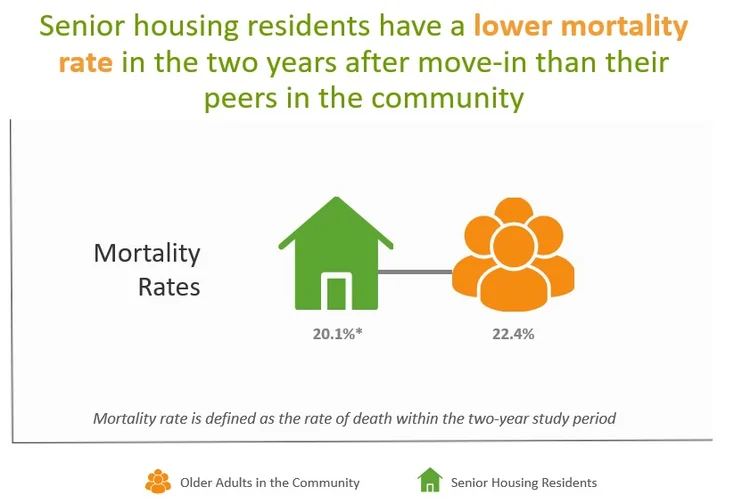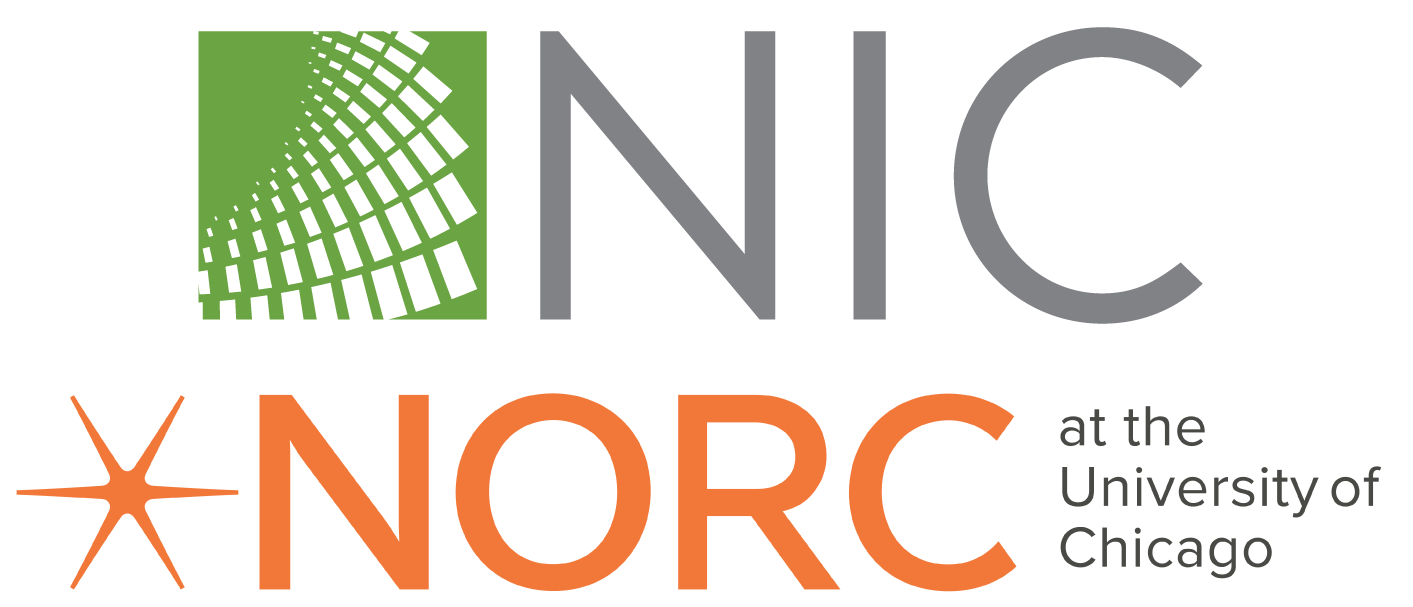Older adults who live in senior housing communities live longer, receive more home health services, and benefit from greater rehabilitative and preventive care in the two years following move-in than those who do not, according to new research. The research was supported by a grant from NIC and led by an independent team of researchers at NORC at the University of Chicago.
Researchers compared older adults who moved into senior housing communities in 2017 and resided there for two years or until their death to a similar group of older adults who remained living in the greater community. They analyzed six measures: mortality, days alive, days away from home due to adverse health events, days receiving home health care, preventative and rehabilitative health services days, and days on anti-psychotics to understand the impact of senior housing.
On average, older adults who move into senior housing:
- Live longer—Living more than one week longer than older adults who live in the community, and have a lower mortality rate;
- Receive more home health care—Receiving 10 more days of home health care services than older adults who live in the community;
- Obtain more preventative/rehab services at home—Receiving four more days of preventative and rehabilitative services at home than older adults who live in the community;
- Spend less time on anti-psychotics—Spending three fewer days on anti-psychotics than older adults who live in the community.
Researchers found that older adults who moved into senior housing properties spend roughly the same number of days away from home to receive high-acuity care as older adults who live in the surrounding community.

The implications for this type of work are significant and will also inform future research projects. One of the findings was that while on average, senior housing properties have metrics more favorable than for those who live in the greater community, the variability among senior living properties is meaningful. There can be more done to learn about those properties who consistently rate among the highest quartiles and replicate those qualities to narrow the spread of rankings between the highest and lowest performing properties.
The study is the third part of a four-part project supported by NIC to assess the health and well-being of senior housing and care residents. Previous studies provided insights on the vulnerability of senior housing residents and access to health care providers, and the final study will assess health outcomes of residents in senior living settings. Access the summary report on the longevity findings, which provides more details, here.
